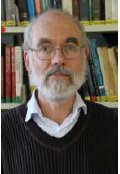 Title, Name: PD Dr. Jürgen Altmann
Title, Name: PD Dr. Jürgen Altmann
Occupation: Researcher at TU Dortmund University
Biography: Jürgen Altmann is a physicist and peace researcher. Since 1985 he has studied scientific-technical problems of disarmament. An experimental focus is on automatic sensor systems for co-operative verification of disarmament and peace agreements and for IAEA safeguards for an underground final repository. A second focus is on military-technology assessment and preventive arms control. Major studies have dealt with laser weapons, ballistic missile defense, microsystems technology, nanotechnology, non-lethal weapons and armed uninhabited vehicles, in particular autonomous weapon systems.
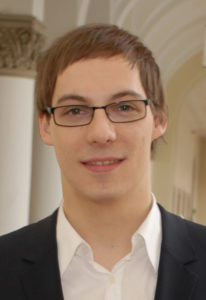 Title, Name: Dr. Christoph Beischl
Title, Name: Dr. Christoph Beischl
Occupation: Research Fellow at the London Institute of Space Policy and Law (ISPL)
Biography: Christoph is the Associate Deputy Director of the London Institute of Space Policy and Law (ISPL). His current research focuses on UK and East Asian Space Policy and Law; Institutionalised Space Cooperation; Space Terminology; Responsible Behaviour in Space, from Space Safety to Space Security, including Cybersecurity; and ‘Privacy’ Considerations in the Space Sector. He is also a Physics Academic Visitor at Imperial College London, and a member of the International Institute of Space Law (IISL) and the German ‘SichTRaum’ space research network. He served as Co-Lead of the Space Law and Policy Project Group of the Space Generation Advisory Council (SGAC) from 2016-2019. He holds a PhD from the Institute of Advanced Legal Studies (IALS), University of London, having examined the potential to establish an Asian Space Agency. He graduated with a Magister Artium in Political Science (Major), Law and Modern & Contemporary History (Minors) from the University of Munich, Germany.
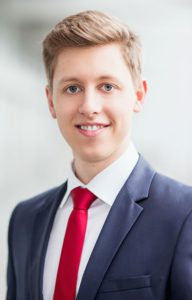 Title, Name: Maximilian Bertamini
Title, Name: Maximilian Bertamini
Occupation: PhD candidate and research associate at the Institute for International Law of Peace and Armed Conflict (IFHV) at Ruhr-University Bochum
Biography: Maximilian Bertamini is an international lawyer specializing in general international law, legal theory and international outer space law. In his dissertation he examines the legality of property acquisition in space by states and private entities in light of the relation between sovereignty and property. His research focus and interests besides his PhD project include human rights and the international law of treaties. In previous publications and blog posts he dealt inter alia with the application of international humanitarian law to outer space and legal aspects regarding the use of anti-satellite-missiles. Mr. Bertamini is also a co-chair of SichTRaum’s research cluster for the sustainable use of outer space as part of the natural environment.
 Title, Name: Dr.-Ing. Vitali Braun
Title, Name: Dr.-Ing. Vitali Braun
Occupation: Space Debris Engineer at the European Space Agency’s Space Debris Office
Biography: After finishing his aerospace engineering studies in 2010, Vitali joined the team at the Institute of Aerospace Systems, Technische Universität Braunschweig, as a research associate to study the modelling of the space debris environment. In that period he worked on the development of software to facilitate risk assessments for space missions but also to study potential scenarios for the evolution of the space debris environment. Besides his support to university courses and teaching, he also began to focus on the domain of space surveillance and tracking, where he graduated with a Dr.-Ing. in 2016. Since 2015, he is working at ESA’s Space Debris Office on the continuous development of the European space debris reference model MASTER as well as the related software suite DRAMA, which is used by organisations world-wide in the compliance assessment of space missions with space debris mitigation requirements.
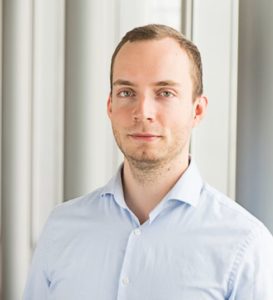
Title, Name: Michael Clormann, M.A.
Occupation: Officer for co-creative Innovation at the Knowledge Transfer Agency of the University of Hamburg
Biography: Michael Clormann advises and implements participative research activities and public engagement effort at the University of Hamburg and beyond. Before his current occupation there, he was a scientific associate at the Department of Science, Technology and Society at the Technical University of Munich and a lecturer at the Munich School of Engineering. His recently concludes dissertation project analyzes opportunities of future innovation and sustainability cultures within the European space sector. His scientific expertise is in Science and Technology Studies (STS) and specifically focusses on the issues of space debris and New Space innovation. His efforts as an innovation practitioner aim at shaping future European space policies to include stakeholder and citizen participation.

Title, Name: Dr. Enrico Fels
Occupation: Managing Director of the Center for Advanced Security, Strategic and Integration Studies (CASSIS) at the University of Bonn
Biography: Enrico Fels studied political science, economics, sociology, and German studies in Münster, Bochum, and Canberra; 2008 T.B. Millar Scholar in Strategic and Defence Studies at the Australian National University (ANU); PhD 2016 in Bonn on the rise of China, the Sino-US rivalry and the power shift in Asia-Pacific; Visiting lecturer and researcher at the Helmut-Schmidt-Universität Hamburg, the ANU, the University of Tokyo (Tōdai) and the Andrássy-University Budapest. His space-oriented research interests lie on the strategic rivalry of old and new actors in space and the relationship of security and sustainability in this increasingly contested realm.

Title, Name: Marieluna Frank, M.A.
Occupation: Research Assistant and Ph.D. Candidate at the Chair for Global Governance, Zeppelin Universität Friedrichshafen
Biography: In her research, Marieluna Frank investigates the role of non-state actors in the high seas, outer space, and Antarctica. In this framework, she is particularly interested in sustainability, environment and intergenerational justice. Before coming to the Zeppelin University, Marieluna Frank worked as an assistant at the permanent EU Delegation to the United Nations in Geneva. Previously, she studied International Law, Human Rights and Political Science in Venice, Luxembourg and Konstanz. Her research aims to promote social discourse regarding the importance of the high seas, Antarctica, and outer space.
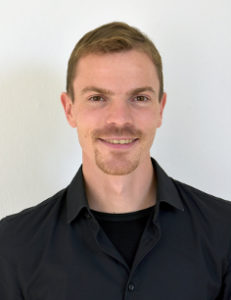 Title, Name: Christian Gerl, MSc, MA
Title, Name: Christian Gerl, MSc, MA
Occupation: Technology Risk Consultant at Ernst & Young GmbH & seminar facilitator at IFSH Hamburg
Biography: Christian Gerl works as consultant in the area of information security and compliance, IT audit, IT strategy and transformation with companies and operators of critical infrastructure. He studied the Master of Science in Politics, Economics and Philosophy (PEP) at the University of Hamburg and the Master of Arts in Peace and Security Studies (MPS) at IFSH Hamburg. Having his astronaut dreams in mind, he wrote his master’s thesis in the MPS program about the question how the protection of space systems can be increased in the short- and long-run in the so-called “NewSpace era”. For his second master’s thesis in the PEP program, he switched back to earth and zoomed in on diplomacy as an institution in international relations. He developed a classification scheme for the plethora of understandings about diplomacy, gave an overview of the history of diplomacy over its 5.000 years history and analyzed the current trends in diplomacy towards the “Digital Diplomacy” concept of our times.
Christian is engaged in various voluntary work and nurtures a vast network in the professional, political and academic world. He developed a seminar about Digital Diplomacy which he offers once per semester at IFSH. He is also regional coordinator of the German Council on Foreign Relations (DGAP)’s young professional branch and co-chair of the MPS Alumni Association and an informal member of the European Science Diplomacy Cluster. In his free time, he loves to sail on the Alster in Hamburg or across oceans aboard the sailtraining vessel “Roald Amundsen” as lead seaman.
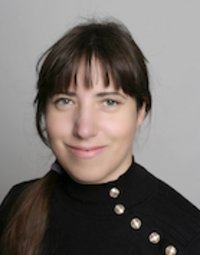 Name: Katja Grünfeld
Name: Katja Grünfeld
Tätigkeit: Doctoral student an University of Cologne, Early Career Researcher on Space Law at the Institute of Air Law, Space Law and Cyber Law at the University of Cologne
Beschreibung:
Katja Grünfeld forscht als Doktorandin unter der Betreuung von Prof. Dr. Stephan Hobe zum Thema Weltraumsiedlung und Weltraumverkehrsmanagement. Sie interessiert sich insbesondere für die rechtliche Autorität des Weltraumvertrags, die Ausweitung der staatlichen Souveränität und ihre Auswirkungen auf die Nachhaltigkeit des Weltraums, sowie auch NewSpace und die damit verbundenen Herausforderungen. In 2019 war sie Manfred Lachs Weltraumrecht Moot Court Europa- und Weltmeisterin und hatte die Ehre in Finalrunde vor dem Internationalen Gerichtshof plädieren zu können. In 2020 schloss sie ihr Studium an der Universität von Ljubljana mit Summa Cum Laude ab. Zum Abschluss ihres Studiums erhielt sie die Auszeichnung zu außergewöhnlichen Leistungen und die Auszeichnung des Büros der Vereinten Nationen für Slowenien für die beste Masterarbeit. Während ihres Bachelor- und Masterstudiums der Rechtswissenschaften und Völkerrecht nahm sie an Austauschprogrammen im Vereinigten Königreich, in Deutschland und in den Vereinigten Staaten teil. Die Austausche haben sie für Arbeit an der Slowenischen Botschaft in Den Haag in 2020 gut vorbereitet, sowie auch für Ihren Umzug nach Köln, Deutschland, wo sie zusätzlich zu ihrer Arbeit an der Universität zu Köln als Tutorin für den ECSL-Sommerkurs on Space Law and Policy in den Jahren 2021 und 2022 tätig war. Sie ist Mitglied der International Law Association, deren Space Law Committee, Mitglied der European Center for Space Law, Prospective Member des Internationalen Institut für Weltraumrecht und Alumni der Haager Akademie für Völkerrecht.
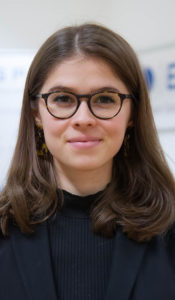 Title, Name: Sara Hadley
Title, Name: Sara Hadley
Occupation: Doctoral Researcher at the Institute for Peace Research and Security Policy in Hamburg (IFSH)
Biography:Sara Hadley is conducting her doctoral research on the topic of the use of satellite imagery by civil society organizations in human rights advocacy. Her previous work as a researcher at the European Space Policy Institute (ESPI) includes contributing to publications on a broad variety of topics, e.g. Japanese space policy, and the challenges of space industrial policy. She was also responsible for supporting the presidency of the European Interparliamentary Space Conference (EISC). Sara Hadley completed her studies with a Master of Science in Global Crime, Justice and Security at the University of Edinburgh. In her master thesis she specialized on security in space by analyzing the conceptualization of security in space using the examples of the United States and India. She has also completed an internship at the Foreign Office in the department for nuclear disarmament, arms control and nonproliferation.
 Title, Name: Dr. Mischa Hansel
Title, Name: Dr. Mischa Hansel
Occupation: Scientific instructor at the SEF (Development and Peace Foundation) in Bonn
Biography: Besides his work in Bonn, Mischa Hansel is Research Associate at the International Centre for Conversation in Bonn as well as lecturer at the RWTH Aachen. Prior, he was a research fellow at the DLR (German Aerospace Center) and at the universities of Aachen, Gießen and Cologne. Research visits took him to the ESPI (European Space Policy Institute) in Vienna and to the SPI (Space Policy Institute) in Washington. His research focus is on aspects of security politics regarding international technology politics (especially space and cyber security) as well as the analysis of German and Indian foreign politics.
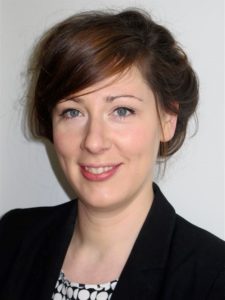 Title, Name: Dr. Nina Klimburg-Witjes
Title, Name: Dr. Nina Klimburg-Witjes
Occupation: Tenure Track Professur „Infrastructures, Innovation and Global Politics“, Department for Science and Technology Studies, University of Vienna
Principal Investigator ERC Projekt „FutureSpace: Negotiating European Integration and Europe’s Future in Outer Space“ (2023-2028)
Biography: In her work at the intersections of Science and Technology Studies (STS) and International Relations, Nina Klimburg-Witjes deals with infrastructures, innovation processes, and socio-technical visions of the future in politics and society. Her current research project, “FutureSpace” on European space policy, the ‘new’ space race and its geopolitical implications, is funded by a Starting Grant of the European Research Council (2023-2028). Nina Klimburg-Witjes received her PhD in Science and Technology Studies (STS) from the Technical University of Munich in 2017 and was co-leader of the research group “Science, Technology and Security” of the Engineering Responsibility Lab at TUM (2016-2018). She was a visiting researcher at the European Space Policy Institute (ESPI) in Vienna, a research fellow at the Austrian Research Foundation for International Development as well as the Austrian Institute for International Policy (Oiip), and a research fellow at the Institute of Sociology at the Albert Ludwigs University Freiburg. Since 2018, Nina Klimburg-Witjes has been a post-doc researcher at the Institute for Science and Technology Studies at the University of Vienna and is now working as an Assistant Professor for “Infrastructures, Innovation, and Global Politics“. Her space-related research interests are related to questions of space security and governance, as well as space debris and shifting value constellations in European space policy-making.
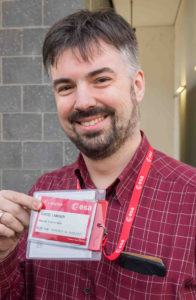 Title, Name: PD Dr. Daniel Lambach
Title, Name: PD Dr. Daniel Lambach
Occupation: Heisenberg Fellow at the Research Centre Normative Orders at the University of Frankfurt. Privatdozentat the Faculty of Social Sciences of the University of Duisburg-Essen.
Biography: Daniel Lambach habilitated in 2016 at the University of Duisburg-Essen at the Faculty for Social Sciences after doing his doctorate at the University of Cologne. In the course of his career he worked at INEF (Institute for Development and Peace) and the Faculty for Political Science at the University of Duisburg-Essen, the GIGA Institute for African Affairs as well as the Philipps University in Marburg. His research in the field of outer space focuses on space debris and anti-satellite-weapons. More generally, his research addresses the construction of political spaces beyond the nation-state.
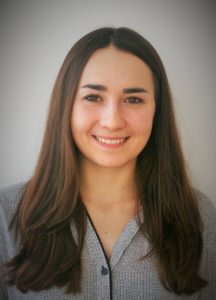 Title, Name: Melissa Lantelme
Title, Name: Melissa Lantelme
Occupation: Doctoral student at the ASCENSION project (EU consortium) in cooperation with the Office national d’études et de recherches aérospatiales (ONERA Toulouse), the Ariane Space SA and the German Aerospace Center (DLR)
Biography: Melissa Lantelme studied mechanical engineering in a German-French double degree program at the KIT Karlsruhe (Institute for Technology Karlsruhe) and the INSA Lyon (Institut National de Sciences Appliquées) with a focus on space travel, fluid mechanics, hypersonic flows and the re-entry into the atmosphere. Alongside her studies she is studying the field of arms control, focusing on autonomous weapon systems, drones and space weapons. In 2020 she received a scholarship for peace and security of the United Nations in Vienna (UNODA) and participated with fellow students in a project with the topic of “Rethinking Arms Control”. She graduates in Aerothermodynamic Modelling for reusable launchers with a focus on space travel regarding hypersonic flows, thermal loads and neuronal networks. Those technical skills are the basis for the technical assessment of space warfare and hypersonic gliders which are crucial in the field of modern warfare.
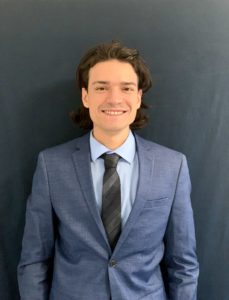 Title, Name: Daniel Leichte
Title, Name: Daniel Leichte
Occupation: Student of Peace and Security Studies at the Institute for Peace Research and Security Policy at Hamburg University (IFSH)
Biography: Daniel Leichte is currently writing his master’s thesis on the link between space debris, space weapons, and arms control. Prior to that, he completed his undergraduate studies in International Studies with a focus on the Middle East at Leiden University. As a member of the Young Deep Cuts Commission (Young Deep Cuts) and a CTBT-CENESS fellow, he also researches issues linked to nuclear disarmament and arms control.
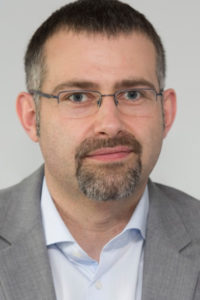
Title, Name: Dr. Max Mutschler
Occupation: Senior Researcher at BICC (Bonn International Center for Conversion)
Biography: Prior to his work at BICC, Max Mutschler was researcher at SWP (German Institute for International and Security Affairs) in Berlin and at the Institute for Political Science at the University of Tübingen. His research focus is e.g. on theory and practice of arms control, international arms trade, the development of warfare through proliferation of modern military technology as well as the militarization and weaponization of space. In his book “Arms Control in Space” he engages with opportunities and limits of preventive arms control in space. In 2010, he was visiting researcher at ESPI (European Space Policy Institute) in Vienna.

Title, Name: Prof. Dr. Götz Neuneck
Occupation: Senior Research Fellow at the IFSH (Institute for Peace research and security policy), pugwash-representative of the VDW and speaker at the task force pysics and disamarment of the German Pysics Association (DPG)
Biography: Götz Neuneck studied physics (finishing his diploma in 1984) in Düsseldorf and did his doctorate in the field of mathematics in Hamburg. He is a professor of the MINT-faculty at the University of Hamburg. He worked from 1986 to 1988 with the task force of Horst Afheldt and Carl-Friedrich von Weizsäcker at the Max-Planck-Institute, Starnberg. After his doctorate in mathematics at Hamburg University he worked as research associate at the Institute of Peace Research and Security Policy at the University of Hamburg under the lead of Egon Bahr. From 2008 to 2019 he was deputy director of the IFSH and managed the IFSH task force for arms control and new technologies. He focuses his work on nuclear arms control, verification and new technologies, especially nuclear weapons, missile defense and space armament. From 2008-2018 he was scientific head of the post grad “peace and security studies” masters at the University of Hamburg. He now is a member of the “Pugwash Conferences on Science and World Affairs” council, Amaldi-representative at the “Union der Deutschen Akademien der Wissenschaften” and voted foreign member of the Russian and Armenian Academy of Science.
 Title, Name: PD Dr. Antje Nötzold
Title, Name: PD Dr. Antje Nötzold
Occupation: Post-Doc at Chemnitz University of Technology
Biography: Antje Nötzold is Post-Doc at the chair of International Politics, Technische Universität Chemnitz (Chemnitz University of Technology), non-resident fellow at the American Institute for Contemporary German Studies (AICGS) at John Hopkins University, Washington DC, and Associate Fellow at CASSIS at University of Bonn. She studied political science and business studies in Chemnitz and Sydney, and finished her PhD in 2010, and her habilitation in 2022. Her research interests on space are non-proliferation and arms control, strategic rivalries and new conflict of systems, along with the impact of space on war and conflict.
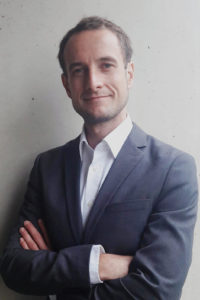 Title, Name: Dr. Philipp Olbrich
Title, Name: Dr. Philipp Olbrich
Occupation: Works in the project “FAIR Forward – Artificial Intelligence for All” at the Gesellschaft für Internationale Zusammenarbeit (GIZ)
Biography: Philipp Olbrich is an advisor in the project “FAIR Forward – Artificial Intelligence for All” that is funded by the German Ministry for Economic Cooperation and Development (BMZ). The project focuses on an open, inclusive and sustainable development and use of Artificial Intelligence with partners in Africa and Asia. Before joining GIZ, he wrote his doctoral thesis with the title: Transparency from Space? How Non-Governmental Actors Use Satellite Imagery for Security Governance at the University of Groningen. Prior to that he worked as a research fellow at the Austrian Institute for International Politics. His research focuses on the socio-material interplay of technology and global politics. In terms of research, he is particularly interested in the governance and social consequences of the development and use of AI and space technologies incl. earth observation satellites. His research was published in academic journals such as Space Policy, International Relations of the Asia-Pacific and Science and Public Policy.
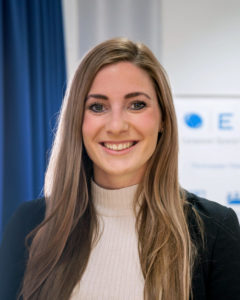
Name: Lina Pohl (M.A.)
Occupation: Research Fellow at the European Space Policy Institute (ESPI), seconded by the German Aerospace Center (DLR)
Biography: Lina Pohl holds a Master degree in Political Science at University of Cologne, with a focus on international relations and security policy. Prior to her position at ESPI, she was working in the International Relations Department of DLR, focusing on the bilateral relations to Russia, CIS, Japan as well as on cooperation with the United Nations, international organisations and in the field of development cooperation.
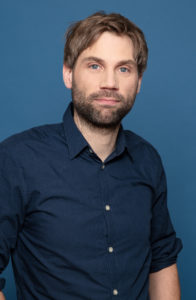 Title, Name: Dr. Delf Rothe
Title, Name: Dr. Delf Rothe
Occupation: Senior Researcher at the IFSH (Institute for Peace Research and Security Policy) in Hamburg
Biography: After studying political science, Delf Rothe received his PhD from the University of Hamburg with a thesis on the securitization of climate change in 2014. In two subsequent postdoc-projects at the IFSH he engaged with practices and discourses on climate security. Delf Rothe currently leads a project funded by the German Research Foundation on the “The knowledge politics of security in the Anthropocene”. The project investigates how knowledge about (future) risks and dangers induced by man-made changes on the environment is being produced, circulated, authorized, challenged and/or politicized. A sub-project is committed to methods of satellite remote sensing – focusing on the European Earth Observation program “Copernicus” in particular.
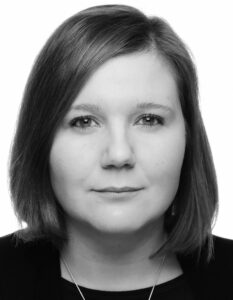
Name: Andrea Rotter
Tätigkeit: Head of division „Foreign Policy and Security Policy“, Hanns Seidel Foundation
Beschreibung: Andrea Rotter heads the Foreign and Security Policy Division of the Hanns Seidel Foundation. Her research focuses on transatlantic security cooperation, German/European security and defense policy, and space security policy. Here, she is primarily concerned with the strategic importance of space in the context of geopolitical rivalry. Previously, she worked for the German Institute for International and Security Affairs (SWP) and taught at the Chair of International Politics and Transatlantic Relations at the University of Regensburg. In 2018, she was a Visiting Fellow of the German Marshall Fund of the United States and the American-German Institute at Johns Hopkins University in Washington, D.C. From 2018-2022, she was a member of the young leaders program of the German Federal Academy for Security Policy. Currently, she is a member of the extended board of Women in International Security Germany (WIIS) and heads the Munich chapter.
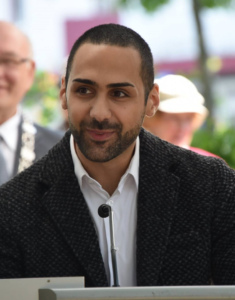 Title, Name: Sonay Sarac, M.A.
Title, Name: Sonay Sarac, M.A.
Occupation: Space Security and Defence Expert at DGLR e.V.
Biography: Sonay Sarac obtained a Bachelor in political science at TU Darmstadt and subsequently a Master of peace and conflict studies at Goethe University Frankfurt. His main areas of study were the scientific and technical dimensions of peace and conflict research and specifically space security policy. In his master’s thesis, Sonay Sarac studied the impact of dual-use space systems as ambiguous technologies on space security dynamics. Since 2017, he has been the Vice Chair of the Space Security and Defense Expert Committee at DGLR e.V.. In this role, he publishes commentary at SpaceWatch.Global and other news platforms and is a public speaker. Professionally, he has worked at DLR and ESA on communications and public affairs matters, among other things.
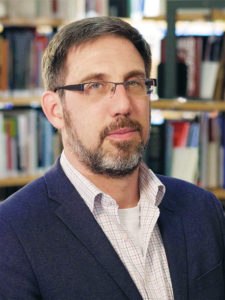 Title, Name: Dr. Niklas Schörnig
Title, Name: Dr. Niklas Schörnig
Occupation: Senior Researcher at the Leibniz-Institute „Hessische Stiftung Friedens- und Konfliktforschung“
Biography: His main research is armament dynamics triggered by new technologies and their control. A special interest of his are unmanned air vehicles (UAVs), lethal autonomous weapon systems (LAWS), the armament of space and the use of KI in the military as well as arms control. Niklas Schörnig is the coordinator of the HSFK task force „Rüstungskontrolle und Emerging Technologies” and project manager of an eCourse (EU-Non-Profileration and Disarmament eLearning Course) developed and managed by the HFSK as part of the EU Non-Profileration and Disarmament Consortium.
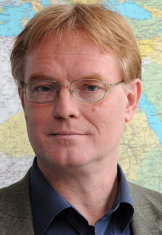 Title, Name: Dr. Jürgen Scheffran
Title, Name: Dr. Jürgen Scheffran
Occupation: Professor for integrative geography at the University of Hamburg and leader of the Research Group for Climate Change and Security (CLISEC) at the CEN (Centrum für Erdsystemforschung und Nachhaltigkeit). He is participator in the climate excellence cluster „Climate, Climatic Change and Society“ (CLICCS)
Biography: After studying and doing his PhD in physics, he worked in interdisciplinary research groups for environmental science and peace and conflict research at the University of Marburg, the Technical University in Darmstadt, the University of Paris (Pantheon Sorbonne), the Potsdam Institute for climate impact research at the University of Illinois in the United States. Jürgen Scheffran contributed to projects for the United Nations, the Bureau for technology assessment of the German Bundestag, the German committee for sustainability research and the expert commission of causes for migration of the German Government. Research subjects of his are climate security, environmental migration and resource conflicts; Nexus Water-Food-Energy supply and relationships between urban and rural environments, sustainability, complex systems and models; technology impact research, arms control and international peace. For approximately four decades he has been investigating the connection between nuclear weapons, missiles, missile defense, satellites and the dual-use of space travel.
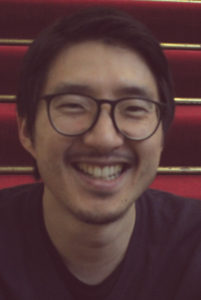 Title, Name: Dr. David Shim (Dr. phil. University of Hamburg, Germany)
Title, Name: Dr. David Shim (Dr. phil. University of Hamburg, Germany)
Tätigkeit: Senior Lecturer and Master Program Coordinator at the Department of International Relations and International Organization of the University of Groningen and visiting researcher at the Chair of International Politics and Conflict Studies of the Bundeswehr University Munich
Beschreibung: David is interested in the visual and spatial dimension of global politics and works at the intersection of International Relations, Geography and Area Studies. David’s work on different visual media – comics, film, photography, satellite imagery – has contributed to the study of visual politics in the field of International Relations. He has translated some of his research activities into teaching practice on his blog Visual Global Politcs. His work appeared in International Political Sociology, Geoforum, International Relations of the Asia-Pacific and Review of International Studies. His book Visual Politics and North Korea is available at Routledge. David is also member of the editorial board of the Korea Journal.

Name: Arne Sönnichsen, M.A.
Occupation: Scientific Consultant at IQIB, PhD candidate at the Chair of International Relations and Development Policy at the University of Duisburg-Essen.
Description: Arne Sönnichsen is scientific consultant at the Institut für qualifizierende Innovationsforschung und -beratung, a 100% subsidiary of the German Aerospace Center DLR. He works on projects related to the German Space Agency.
In his PhD thesis, Arne Sönnichsen analyzes the impact of technological innovation on ordering processes in outer space governance. As examples, he conducts research on the emergence of private space launch capabilities, the establishment of military space forces and discussions around space traffic management. Other interests of his are popular culture and politics.
Information on publications and activities can be found on the webpage of University of Duisburg-Essen (currently in German).
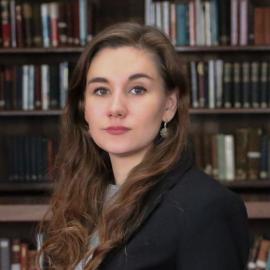
Name: Juliana Süß, M.A.
Occupation: Research analyst at RUSI.
Description: Juliana Suess is the Research Analyst and Policy Lead for Space Security in the Military Sciences Team at the Royal United Services Institute (RUSI) in London and host of the podcast “War in Space”. Her research interests include global space governance, sustainability, counterspace capabilities and space warfare. Juliana holds an MA in Conflict, Security and Development from King’s College London and a BA in Politics and International Relations from the University of Reading. Prior to joining RUSI, she was an intern for the Development, Concept and Doctrine Centre, the independent think tank of the Ministry of Defence. There she researched varied topic areas, including geo-strategic, security and stabilisation topics, as well as future and contemporary trends in warfare.
Informationen zu weiteren Mitgliedern werden kontinuierlich ergänzt.
